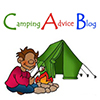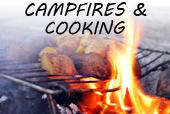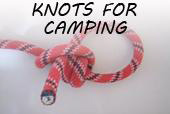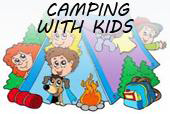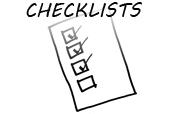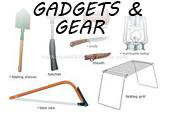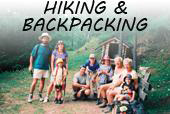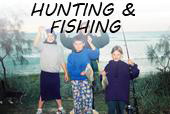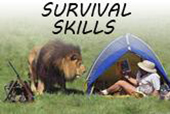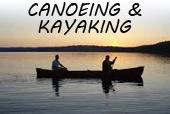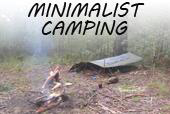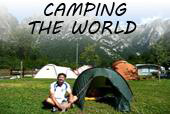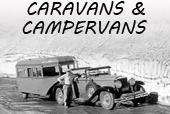One of the great things about planning an Oregon camping trip is the number of options visitors have, both in things to do and see and in where to stay. With nearly 100 state and federal Oregon campgrounds and even more privately owned facilities, the challenge won’t be finding Oregon campgrounds, it will be deciding which ones to choose.
When to Go
For most people, work and school schedules often help determine when they can take an Oregon vacation. Those with kids typically have to wait for the summer months if they want to visit for more than a few days. For most this works out great because Oregon weather is at its warmest, and it is the peak of the travel season so all the Oregon campgrounds and attractions are open. Reservations are recommended during the summer months as many of the most popular campgrounds tend to fill up fast.
Many festivals are held in the summer, wild and cultivated flowers are in bloom, and there is even a resident group of whales along the coast for those that want to experience Oregon’s legendary whale watching.
Whale watching is at its peak in March, making spring an ideal time to visit Oregon, especially the coastal area. Snowmelt also increases the water levels in rivers, creating churning rapids just waiting to be kayaked or rafted.
Autumn is a good time to visit if you plan to fish Oregon coastal rivers and streams. Steelhead and salmon enter these waters to spawn beginning in September and continuing into late fall. Forest Service offices provide information on fishing conditions in their areas, as do websites for the local communities.
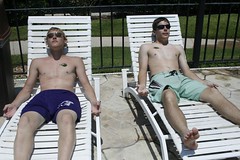
Fall is also a good time to visit one of Oregon’s vineyards. The Willamette Valley, slightly inland from Oregon’s northwest coast, is known as wine country, and there are numerous wineries that offer tours and tastings.
In addition to fishing and wine tasting, the fall foliage is in full color and the Oregon camping sites are typically less crowded than in summer months. Contact the Oregon Fall Foliage Hotline at 1-800-547-5445 to find peak color times for the areas you plan to visit.
Winter is the perfect time to visit Oregon if you like skiing, snowboarding, and other snow activities. In the winter months, average inland daytime temperatures are often in the 40s. A second whale migration in December through January makes a winter trip to the Oregon coast appealing as well. The ocean climate helps keep temperatures relatively mild, and winter camping in Oregon can be cozy and comfortable with proper clothing and camping equipment. Even in mid January, temperatures often reach into the 50s in the coastal areas.
Many of the state park campgrounds remain open year round although running water may not be available. Fewer families come to Oregon in the winter months, so if you like quiet getaways, this may be the best time to visit Oregon.
Choosing Oregon Camping Sites
City living: Portland, Eugene and several other larger cities in Oregon have numerous campsites close to town for those that want to be close to the action but still enjoy the fun of RV travel or tenting it. Even Oregon’s more populated areas are surrounded by forests, mountains, and waterways, so finding a natural setting is not difficult.
Private campgrounds in Oregon: There are hundreds of private campgrounds throughout all areas of Oregon. Some cater to families with children and offer playgrounds, activities, and other kid-friendly features. Others are more basic or focus on nature and peaceful settings. No matter what your areas of interest and your camping style, you can likely find a private campground to fit your needs. Begin by contacting visitor information offices or city chambers of commerce in the area of the state you plan to visit.
Oregon state park camping: The number of state parks, scenic sites and recreation areas in Oregon is simply amazing. While some of these are day use only facilities, many provide overnight camping with both tent and RV sites. Often, these Oregon state park camping sites are located in some of the state’s most beautiful scenery, and fees are typically comparable or less than those at privately owned campgrounds.
For a truly unique experience, some Oregon state park camping areas offer camping in tepees, yurts and covered wagons. Visit the Oregon Parks and Recreation Department’s state parks website at http://www.oregon.gov/OPRD/PARKS/index.shtml to find Oregon camping sites in the area you plan to visit. When you get to the park, don’t forget to stop and get your permit or park pass.
Oregon beach camping: Oregon is one of only two states in the U.S. whose beaches are all considered public land. The beaches are managed by the Oregon Parks and Recreation Department, and many offer camping facilities. With the stars overhead and the sound of the surf providing background music, Oregon beach camping can be one of the most memorable ways to experience the beauty of the Oregon coast. Note: it is illegal to camp on the beach in unauthorized areas, and anyone setting up camp without permission can be asked to leave.
What to Bring When Camping in Oregon
In addition to the standard food, water, clothing, first aid items and camping equipment, it is advisable to also include:
• a hat
• sweatshirts and jackets for layering
• a plastic garbage bag, to use as a rain poncho just in case
• a map of the area
• a flashlight
• bug repellent
• a pocket mirror (for signaling if you get lost)
• a whistle
Check all your equipment before you leave to make sure it works properly and is in good condition. Many Oregon campgrounds are in remote locations where it can be difficult to find replacement batteries or lantern fuel in the middle of the night. For this reason, it is also helpful to know some basic first aid and wilderness survival information.
Other Considerations
Weather conditions, construction and repairs, and standard regulations can impact campground activities and services. For example, some Oregon campgrounds prohibit alcohol. Open campfires may be restricted at certain times of the year. Buildings and natural areas may be closed. Pets may not be allowed or allowed only in certain areas of the campground. It is a good idea to contact your chosen campsite or visit their website to learn about rules, regulations, and current conditions.
